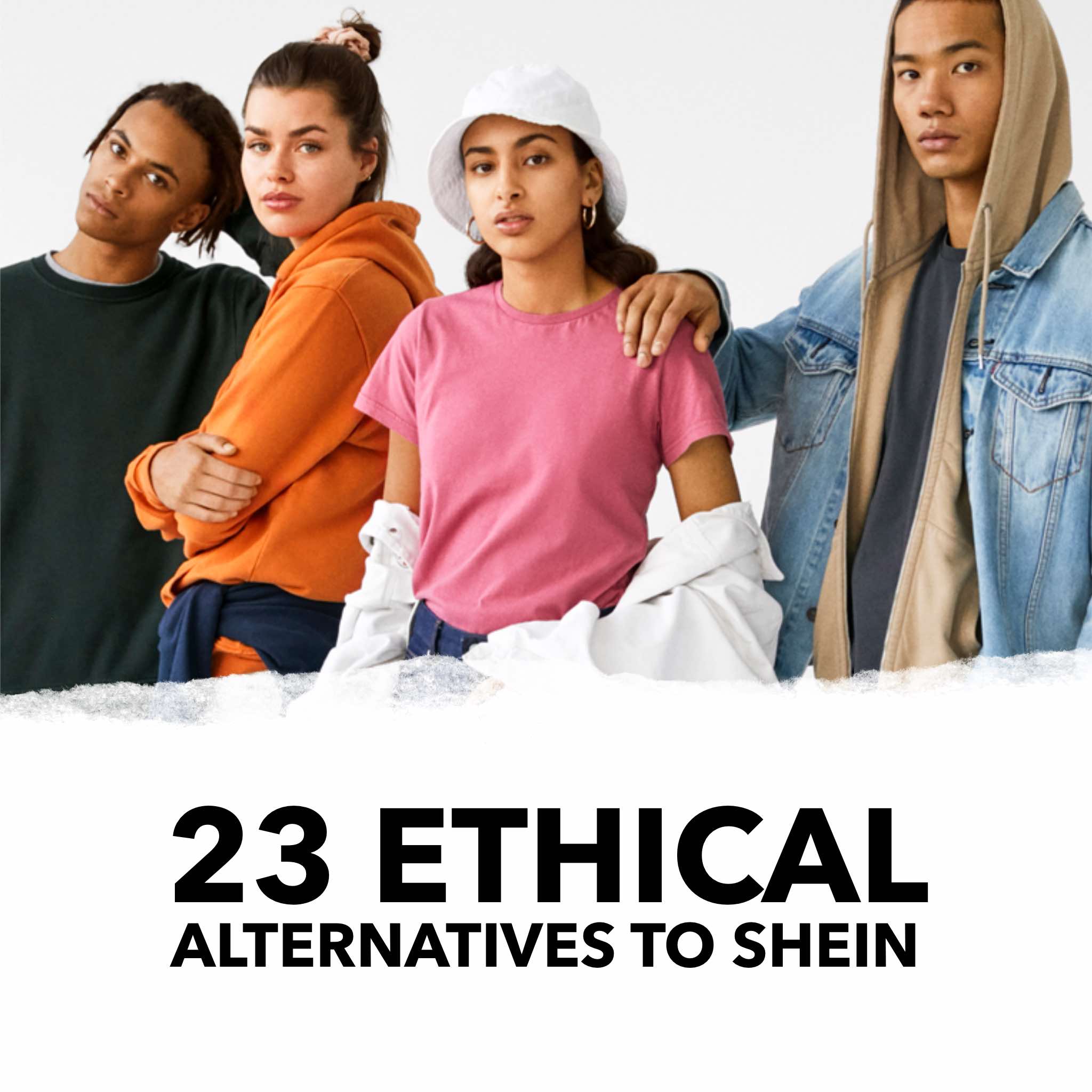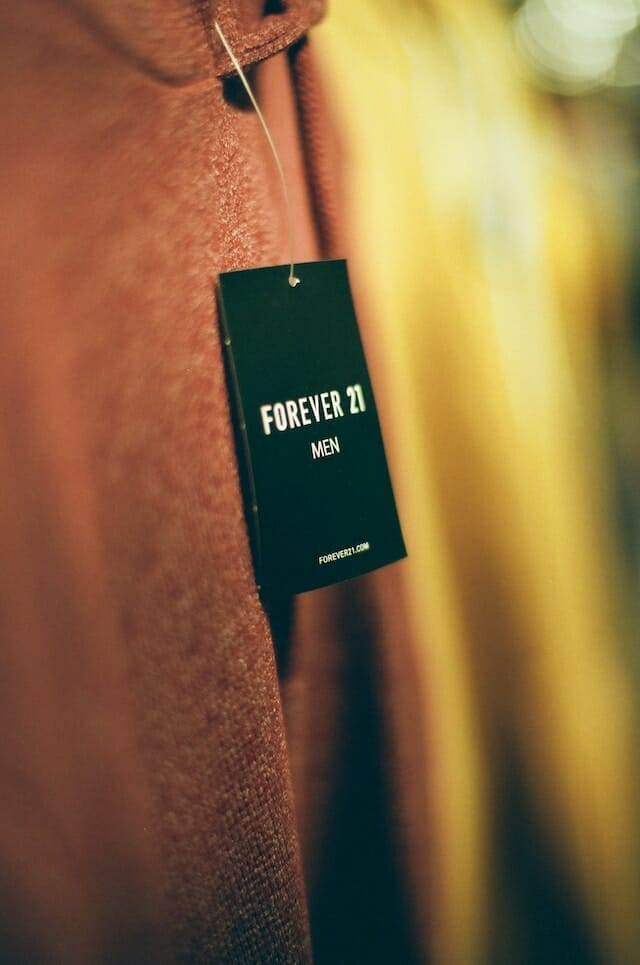
I used to shop at Forever 21 too, I had a blue peplum blouse with white polka dots that I used to wear all the time. Then, I learned about the dire consequences of fast fashion, to which Forever 21 contributes.
Forever 21 defines itself as the “go-to retailer for the latest trends, styles & the hottest deals.” In a system that has taught us to want more trendy clothes, faster, and cheaper, this seems very attractive.
But if we look further than the possibility of being able to jump on the next Tik Tok “rich mom energy” trend, we can see their collection of anime shirts isn’t as cute as we might have thought. Because said shirts were made under unfair and ecologically harmful conditions and are usually not bought by “poor people”, but by middle and high-income people in rich countries like the US.
Is Forever 21 fast fashion?
Yes, it is.
First founded by Korean immigrants Jin Sook and Do Won Chang in the 1980s and called Fashion 21, the brand was founded on the now widespread idea of identifying trends and working with suppliers to bring them to market as quickly as possible.
And even though it declared bankruptcy and had to undergo substantial downsizing due to mismanagement, it is still popular with college students and teenagers alike.
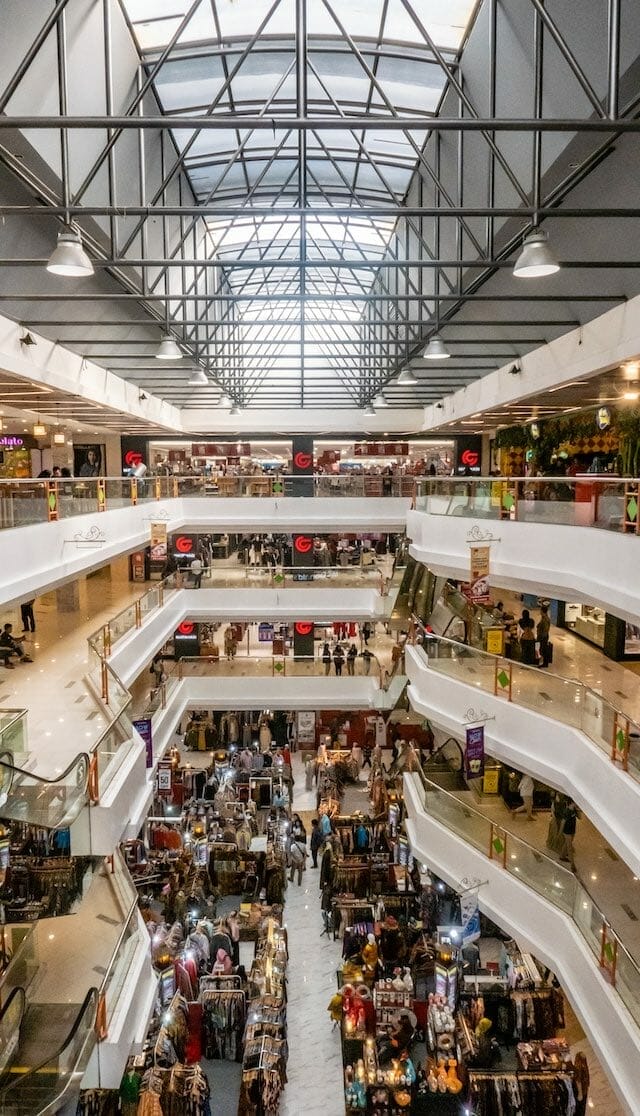
In 2020, Forbes Magazine said the company was estimated to “turn over 20% of its stock weekly”. This may not seem as fast, seeing how new ultra-fast fashion brands churn out thousands of styles daily, but it was, in fact, one of the first fast-fashion retailers in the scene.
If you want to know more about how fast fashion’s model based on overproduction and overconsumption is detrimental to our emotional health, clothing makers, and the environment, we got you with previous articles that dive deep into the subject:
But today we want to focus on this fallen titan that is still gasping for air by polluting ours.
Is Forever 21 transparent?

One of the first characteristics of brand transparency is how much they tell us about their designs, processes, manufacturing, and raw materials. Where did they come from? Who made them? What conditions were they made under?
Because knowledge is power, we rate our brands on how much information they give to their consumers, and Forever 21 is not faring well on this fundamental consideration.
Forever 21 does not publically offer any factory list, not even naming the countries where their clothes are made. It seems they missed the Fashion Revolution memo asking #Whomademyclothes. They do not list the locations of any of their raw material suppliers, And they also do not offer information on standards that ensure worker health.
We also could not find any reference to audit findings, efforts to remediate situations, or programs to engage their facilities in processes to assess and develop better environmental or social practices.
The only thing they do have regarding transparency is a vendor agreement that says that they must not subcontract to any other facilities. It is not clear whether those are cut and sew, processing, or raw materials. It is also unclear how they enforce this or what the consequences are for factories found in violation.
Does Forever 21 work with fair labor practices?
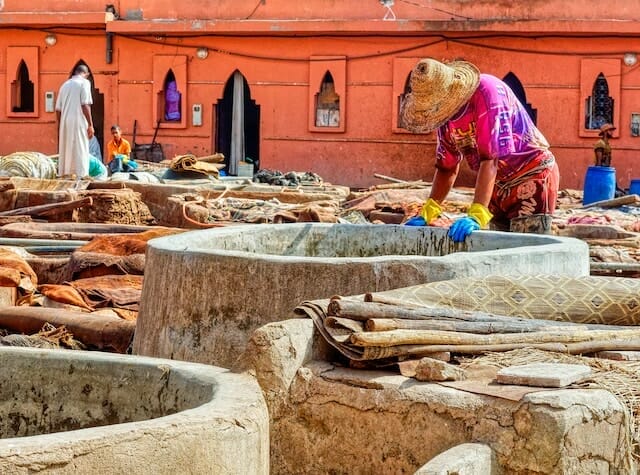
It does not. They did not even sign the Bangladesh Accord on Fire and Building Safety, which came into fruition to avoid future tragedies like the one in Rana Plaza in 2013, which put the fashion industry’s issues on display for all to see.
Not only that but they were found to pay their garment workers in LA way below the living wage, as low as $4-7 per a 10-hour day. Additionally, 300 workers filed claims against the fast fashion giant, demanding to be paid, between 2006 and 2017. This year, there was also a class action lawsuit against the company for not properly compensating their employees for bag checks they subject them to while taking time away from their breaks or time off.
Furthermore, according to the U.S. Department of Labor, 85% of cut-and-sew factories were paying below living wage regulations in Southern California, and such manufacturers were linked back to Forever 21.
The U.S. Department of Labor also did an investigation on a particular dress that was priced at $24.90. For the workers to have earned the $7.25 federal minimum wage in 2017 and to also abide by the LA $12 minimum wage, such a dress should have been priced at $30.43. Forever 21 was indeed not paying anywhere near enough to its suppliers to be able to pay their workers fairly.
Even worse, as of 2023 the company still has made no efforts or statements to remediate this issue. There is no mention of living wages in their social responsibility section, nor are they making any effort to achieve that goal.
In their vendor code of conduct, they do not mention FLA or any standards that would benefit social and employee well-being like SA8000. Furthermore, even though it says it assesses its facilities, it is unclear which of them they assess, where, or how often.
Forever 21 doesn’t have programs to solicit clothing maker feedback and they do not support collective bargaining or unions (all of which help ensure workers rights). They are also not implementing any programs to make their workers’ or community’s lives better. This is nothing short of unsafe working conditions, modern slavery, and colonialism.
Is Forever 21 sustainable? What’s their environmental impact?

Forever 21 does not have any published priorities, goals, or policies regarding sustainability, materials, water land stewardship, or biodiversity. They also do not demonstrate any understanding of or comment on the fact that sustainability is an intersectional matter, that without social justice there is no climate justice.
Forever 21 does not show whether it assesses its most material environmental impacts, or whether it has a plan to improve its Carbon Emissions. In light of the fact that in 2016, one Forever 21 worker was producing 700 shirts a day, according to the LA Times, its ecological impacts are not minor.
It also does not plan to reduce its production any time soon. So far, it shows no advancements in terms of reducing the waste of making their garments or intent on devolving new business models that have in mind the end of life or repair of their products, so that they don’t end up in landfills in the Global South.
There was also no information on the amount of water usage in their garments or any programs to reduce it. It also does not implement any wastewater-cleaning technologies. As we have seen with the Citarum River, it is the people from the Global South who make our clothes who have no other option but to drink, bathe and harvest in polluted waters from garment-making centers.
Forever 21 also does not have any programs to reduce the chemicals in its supply chain. Chemical pollution is also a big issue since we are getting poisoned by toxic chemicals way above regulation in our clothing and water systems. Chemicals such as lead, PFAs, and phthalates produce a myriad of health issues, including, but not limited to, endocrine, skin, and respiratory conditions.
Finally, it does not mention working with its raw material producers on more regenerative or organic practices and does not have any policies or goals that protect the people who made the fabrics.
The only things Forever 21 is doing in environmental terms are:
- A bring your own bag program, that donates $0.05 to the American Forest Association.
- People can purchase a T-Shirt that donates $1 to the American Forest Association.
These first two programs are nothing short of greenwashing. Donating a meager sum to forest conservation does not erase or repair any of the damage they make with their overproduction model.
- They also have pledges of no angora, fur-free, and no mohair.
It is important to understand that even though there should not be animal cruelty, vegan does not immediately equate to environmentally conscious or positive. We can’t even verify what substitute for leather they are using, to see whether it is an oil-based one (most likely), plant-based, and what conditions it is made under.
- They signed the Responsible Sourcing Network’s Cotton Pledge. This pledge is one that signals the brands’ commitment to end forced labor in Uzbekistan. However, Forever 21 only says it is no longer sourcing from them. Not actually helping end the issue, for one. And they are also not clear on where they source from now and what sort of cotton they source. And those things matter: conventional cotton production is water intensive, filled with pesticides, and monoculture practices as well as labor exploitation (not just in Uzbekistan).
Do we trust Forever 21?
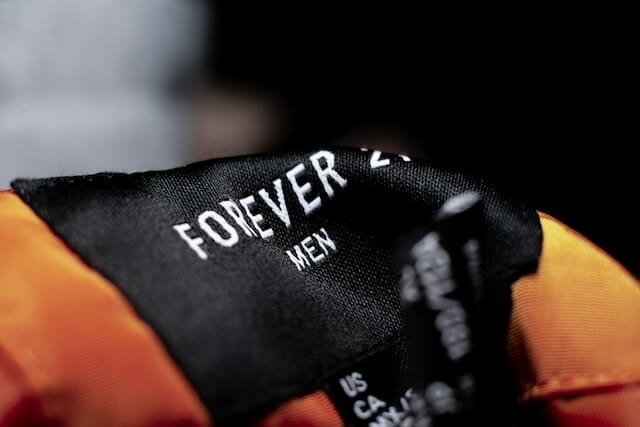
No, we do not, because their practices are neither transparent nor ethical. Imagine if you were dating someone and they barely told you their last name, were opaque about their upbringing, and were secretive about their friends. Forever 21 is that shady person your friends have been telling you to stay away from because they are not transparent.
As we said previously, they don’t share info on most of their practices, not even sustainability goals, which is the bare minimum. What they do share is either too surface-level or just plain greenwashing.
Another reason we don’t trust them? They steal designs from other companies, artisans, independent designers, and celebrity’s designs, it’s as if your new boo was stealing from your wallet. The brand has been sued more than 50 times for copyright issues. Forever 21 has been sued by a myriad of entities including Ariana Grande, Gucci, DVF, Mara Hofman, and Adobe for stealing their image, software, or property.
DEI
Not content with stealing from other designers, the fast fashion business is also notoriously underperforming on diversity and equity. In 2019, they allegedly shipped free diet bars only in plus-size orders. They also cashed in on the Black Panther success by selling a sweater that said Wakanda Forever, while using a white, blue-eyed model to publicize it.
Meanwhile, on the inside, the mistreatment of employee Mickael Louis is but one example of discrimination on the basis of race, sex, and gender. He filed a complaint in NY court due to managers subjecting him to sexual harassment, ridicule, and racist nicknames.
He also says he observed racial profiling of customers by workers in stores. In the training, store employees were told to limit the number of black cashiers and be aware of black shoppers who were supposedly potential robbers.
The only DEI initiative I was able to find on Linkedin was a Future of Sel initiative called “Self-Awareness as a Social Justice Tool for Wellness,” which the brand’s channel says helped them understand “the role we each play in our own journey of building a more diverse, equitable and inclusive world.” It apparently consisted of a workshop and one-on-one meetings, but had no obvious outward effects on the equitability of the company’s practices.
Is Forever 21 aligned with our values?
They are not. You could even say they are not only failing to contribute to the solution, but they are also a huge part of the problem as one of the less-transparent fast fashion companies.
Looking for a sustainable alternative to Forever 21?

We also want to be able to wear stylish outfits that allow us to feel good and express our identity and belonging, and since we understand how hard it is to shuffle through the stacks of green and social washers, we did the job for you.
In our directory, we rate and classify brands for Transparency, Sustainability, and Fair Labor. By looking and filtering through it, you can find alternatives to Forever’s sexy active wear in Wolven, or loungewear in the body-positive Girlfriend Collective, as well as cute dresses in brands like Whimsy and Row.
For more sustainable alternatives to Forever 21, check out:
- Our curated shop of ethical clothing
- Our guide to affordable sustainable clothing

Adela is a Colombian storyteller, content maker, strategy consultant, & event producer, specializing in sustainable fashion, mental health, and gender issues.






